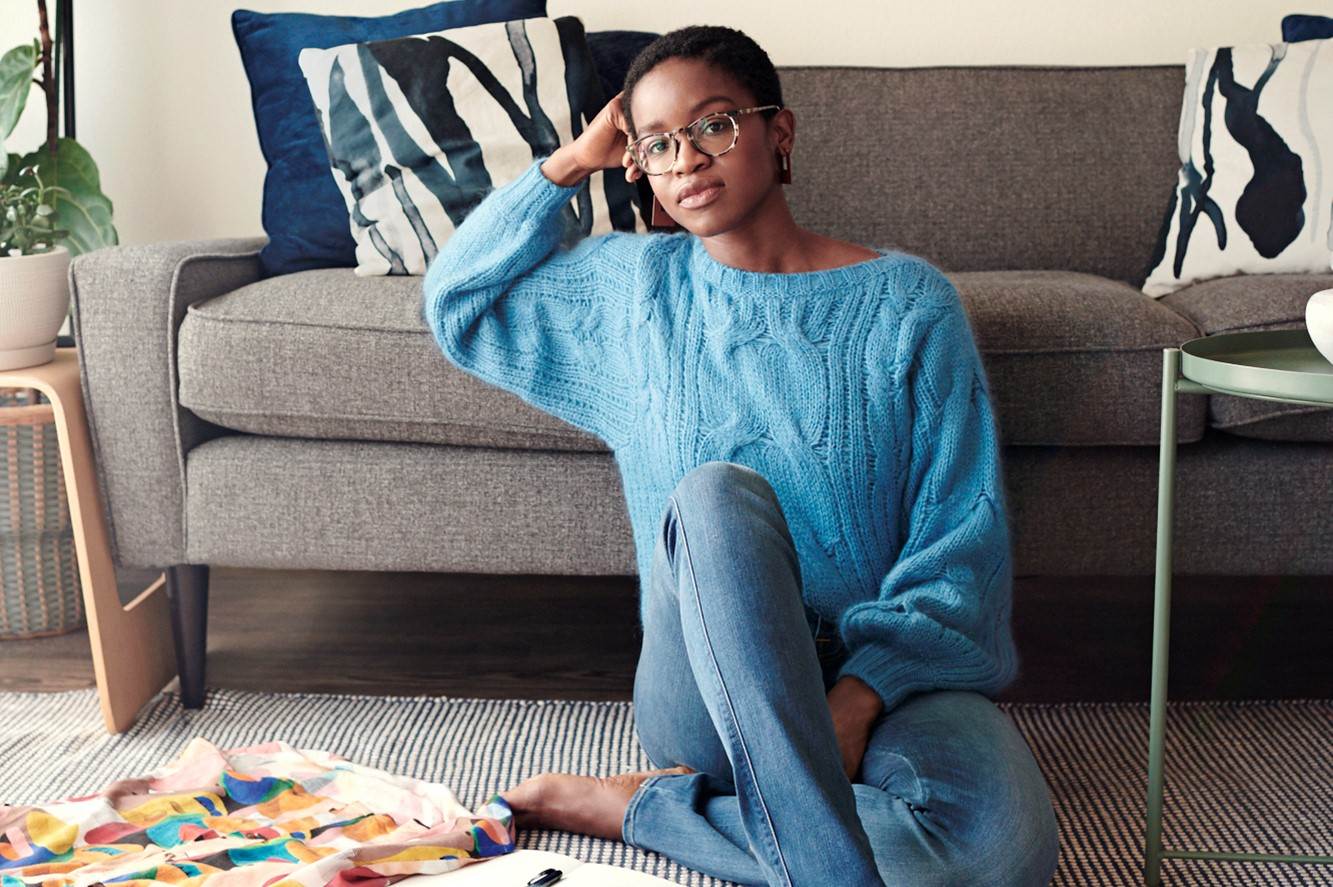Loungewear’s growth is no threat to denim

Whether denim companies will be negatively impacted by growing loungewear was the topic of a panel at the Denimsandjeans virtual trade show.
Hosted by denim consultant Ikeme Eshemokhai, the speakers discussed how companies needed to innovate, tell their stories, to diversify within their own workforce and communicate better with mills and other companies.
Simone Berry, a designer and strategist specialising in streetwear and fashion brands, said people are still wearing denim through the pandemic but have not been buying as much of it. “One of the reasons is a practical one: sweatpants are easy to buy online, whereas denim is about fabric, fit, wash,” she said. “Denim brands need to invest in fit technology. There are incredible fit stories in store but if you go online, there’s no real technology.”
She believes the pandemic is offering a chance to slow down now, and that brands should “thoughtfully and intentionally” look at their products. “Test, test , test; try new things,” she said. “The consumer has changed, they want way more. Denim as a category will bounce back, but the brands need to be proactive.”
Fashion consultant Audrey Tetrault agreed, saying that brands need to focus on their story if they are to attract the younger generation of consumers. They will also need to look beyond traditional advertising techniques and think about seasonless and genderless collections, she added.
Miko Underwood, founder of Oak & Acorn brand, already focuses on seasonless and genderless. “When I think about sustainability, it’s not just about the fabrication – although we are using Refibra, hemp, BCI cotton, recycled materials and Tencel – but sustainability is how I show up as a brand. When I’m designing, I don’t think of the pieces as a one off, I see them as having a longstanding legacy. We need to show transparency. Consumers want to know the story and need to be connected.”
Transparency extended into discussion on race and diversity, and how the denim industry is addressing these topics.
“Bigger brands need to think about what their message is,” said Simone Berry. “Part of it is diversity and inclusion. Athleisure is reaching to the diversity conversations but denim is quiet. It starts on all levels - how are you hiring to get diverse voices in the room? If everyone in the room comes from the same background, where are these new voices and these new ideas going to come from?”
Ms Eshemokhai agreed, and said there needs to be more diversity at all levels of companies, including in the design teams and at senior management level. “Brands talk about diversity and inclusion, but they often just hire more diverse staff in the stores or models for the campaigns, or people in HR. But what about the decision makers? That’s where you need diversity. It’s only with that that you will have more innovation.”
The panel concluded that the pandemic was offering a unique opportunity to slow down and innovate, and to make some big changes, but that the rise of loungewear was not an imminent threat. Denim has many of its own qualities, is durable, comfortable and versatile, they said. “Loungewear is growing because of the pandemic but people are also wearing denim for Zoom meetings,” said Ms Underwood. “Denim has always been loungey, for me.”
PHOTO:
7 For All Mankind’s autumn-winter 2020 campaign, which included portraits of subjects in their homes and neighbourhoods during the covid-19 shutdown. This image shows Abolaji Ogundele, a physical therapist and designer, photographed by Justin Chung in Dallas. Credit: 7 For All Mankind










